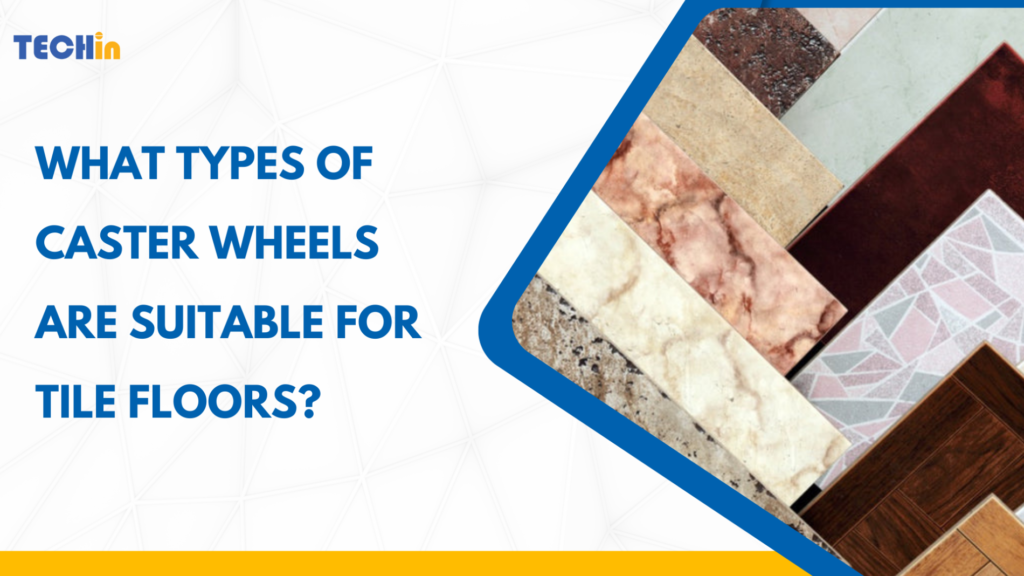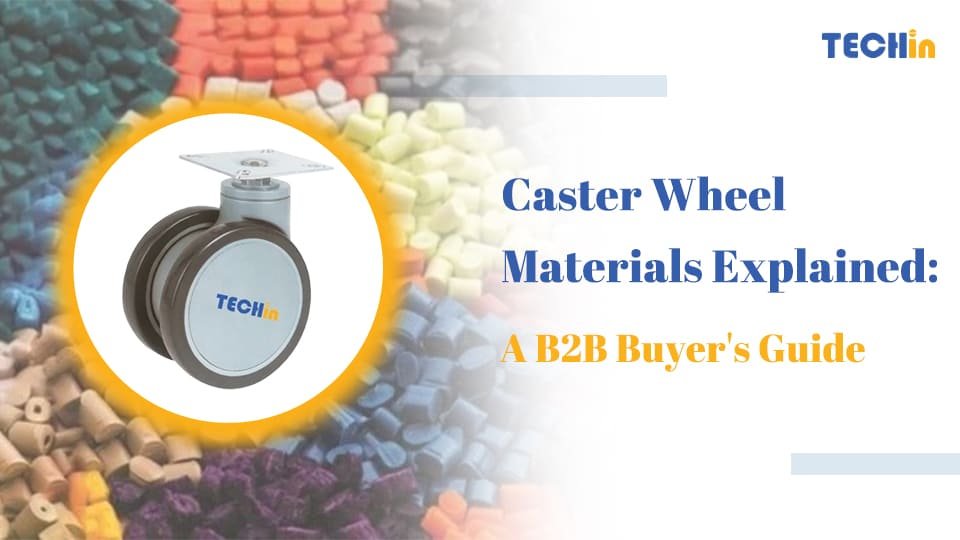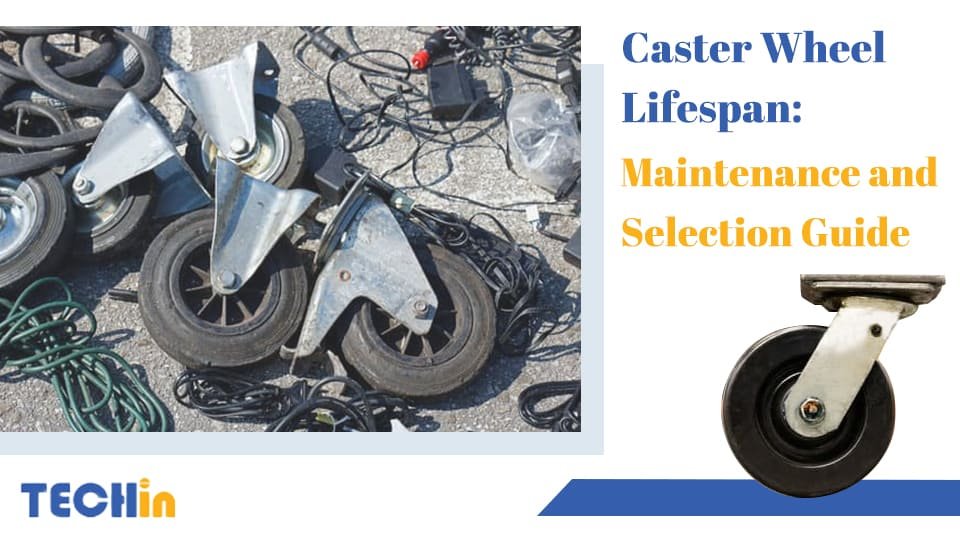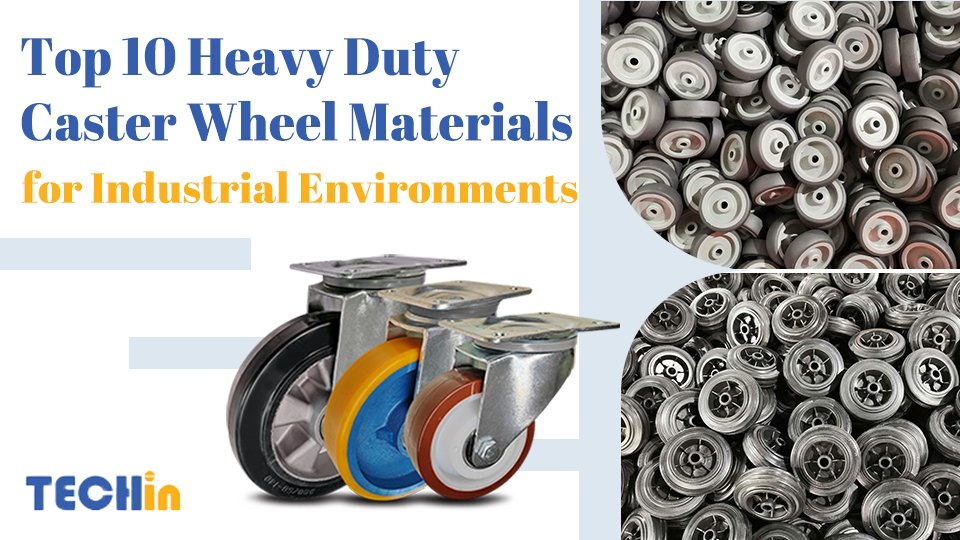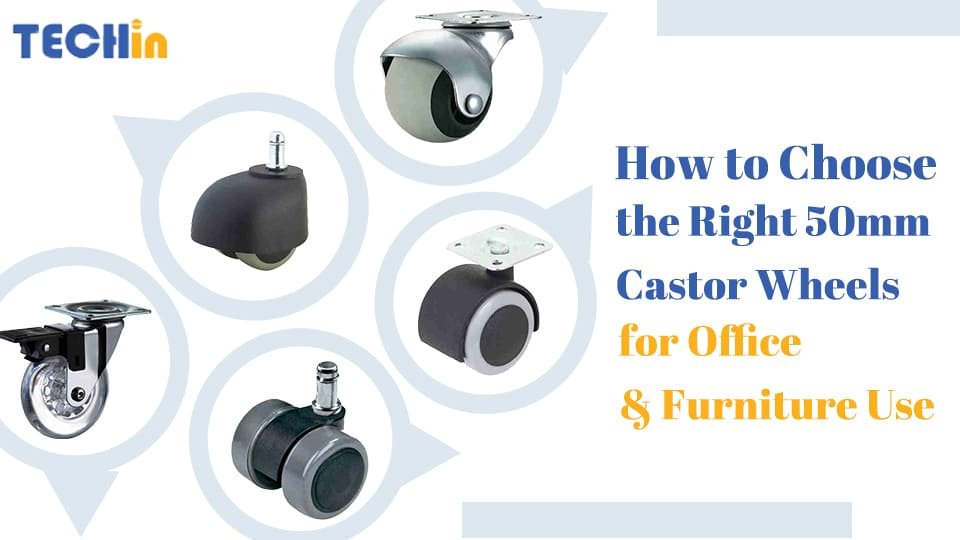When it comes to picking the right caster wheels for tile floors, you’re going to be overwhelmed by the options. If you choose the wrong ones, you’ll damage your tiles, make a lot of noise, and be frustrated. In this article, I’m going to help you pick the best caster wheels for your tile floors so you don’t damage your tiles and your furniture moves around easily.
The best caster wheels for tile floors are made of thermoplastic rubber (TPR), polyurethane(PU), or soft rubber. These materials are soft and won’t mark your floors. They also roll smoothly, won’t scratch your tiles, and are quieter than harder materials.
Now, let’s dive deeper into why these caster wheels are the best choice and talk about some other things to consider.
1. What Caster Wheels Are Best for Tile Floors?
The best caster wheels for tile floors are made of thermoplastic rubber (TPR), polyurethane (PU), soft rubber, polyolefin, or polypropylene. These materials are soft enough to prevent damage to the tiles and provide a smooth rolling experience.
| Material | Advantages | Best Use |
|---|---|---|
| TPR | Soft, non-marking, quiet | General use, noise-sensitive areas |
| Polyurethane | Durable, non-marking, smooth | Heavy loads, various environments |
| Soft Rubber | Shock-absorbing, quiet | Light to medium-duty applications |
| Polyolefine | Durable, non-marking | Indoor and outdoor use |
| Polypropylene | Cost-effective, non-marking | General use, cost-sensitive areas |
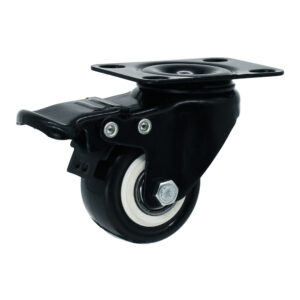
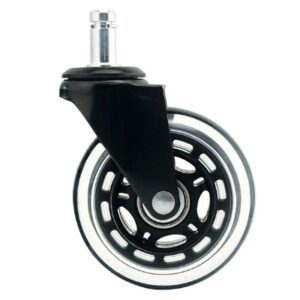
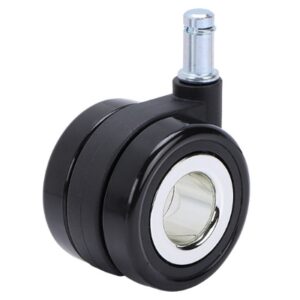
- Thermoplastic Rubber (TPR): These wheels are soft, non-marking, and offer excellent protection for tile floors. They are perfect for preventing scratches and ensuring a quiet operation. TPR wheels combine the benefits of rubber and plastic, making them durable and resilient. They are also resistant to chemicals and abrasions, adding to their longevity.
- Polyurethane: Known for their durability and non-marking characteristics, polyurethane wheels provide a smooth ride and are gentle on tile floors. These wheels are also resistant to oil, grease, and water, making them suitable for various environments. Polyurethane wheels can handle heavy loads while maintaining a soft tread, which is crucial for protecting tile surfaces.
- Soft Rubber: These wheels are excellent for absorbing shocks and protecting tiles from damage. They offer a smooth and quiet rolling experience. Soft rubber wheels are ideal for light to medium-duty applications and can navigate over small obstacles without causing damage to the tiles.
- Polyolefine: Durable and non-marking, polyolefine wheels are suitable for various flooring types, including tile. These wheels are resistant to chemicals and moisture, making them ideal for both indoor and outdoor use. Polyolefine wheels are also lightweight, which reduces the strain on the tile floors.
- Polypropylene: These wheels are cost-effective, non-marking, and provide a decent level of protection for tile floors. Polypropylene wheels are resistant to water, oil, and chemicals, making them suitable for environments where these substances are present. They are also lightweight and durable, offering a balance between performance and affordability.
2. Are There Caster Wheels That Prevent Scratching on Tile Floors?
Yes, caster wheels made from softer materials like TPR and polyurethane are designed to prevent scratching on tile floors. These materials do not leave marks and ensure the tiles remain in good condition. The soft composition of these wheels absorbs impacts and distributes the load evenly, reducing the risk of scratches and cracks on the tiles.
- Non-Marking Properties: TPR and polyurethane wheels are specifically designed to be non-marking. This means they won’t leave unsightly black marks or streaks on your tile floors, keeping them looking clean and well-maintained.
- Soft Tread: The softer tread of these wheels provides a cushioning effect that absorbs shocks and prevents the wheels from grinding against the tile surface. This is particularly important in high-traffic areas where frequent movement could otherwise cause significant wear and tear.
- Load Distribution: Soft wheels distribute the weight of the furniture or equipment more evenly across the tile surface. This reduces the pressure on any single point, minimizing the chances of scratching or denting the tiles.
3. What Materials Should I Avoid for Casters on Tile Floors?
Avoid using caster wheels made from hard materials such as steel or hard plastic. These materials can cause significant damage to tile floors, including scratches and cracks, and they tend to be noisier. Hard materials do not absorb shocks well, leading to increased wear and tear on the tiles. Additionally, they can leave unsightly marks and reduce the lifespan of your flooring.
- Steel Wheels: While durable and capable of supporting heavy loads, steel wheels are too hard for tile floors. They can cause deep scratches and cracks, especially if the floor is not perfectly smooth. Steel wheels are best suited for concrete or other hard surfaces that can withstand their rigidity.
- Hard Plastic Wheels: These wheels are often used for their affordability and lightweight properties, but they are not suitable for tile floors. Hard plastic can easily cause scratches and leave marks on the tiles. Over time, the repeated movement of hard plastic wheels can wear down the surface of the tiles.
- Nylon Wheels: Although more forgiving than steel, nylon wheels are still relatively hard and can cause damage to tile floors. They are better suited for carpeted or industrial flooring where their hardness is less of an issue.
4. Which Caster Wheels Are Most Quiet on Tile Surfaces?
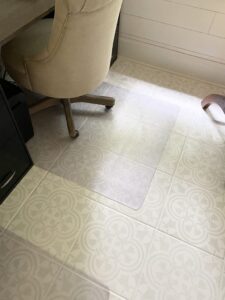
TPR and polyurethane wheels are the quietest options for tile floors. Their softer composition absorbs sound better than harder materials, making them ideal for noise-sensitive environments. Soft rubber wheels also offer quiet operation, making them suitable for residential and office settings where noise reduction is essential.
- Sound Absorption: The soft material of TPR and polyurethane wheels absorbs vibrations and reduces the noise produced during movement. This makes them perfect for settings where noise levels need to be kept to a minimum, such as offices, libraries, and homes.
- Smooth Rolling: These wheels provide a smooth rolling experience, which further reduces noise. Hard wheels can create a rattling sound as they move across tile floors, but the soft tread of TPR and polyurethane wheels eliminates this issue.
- Reduced Impact Noise: When moving heavy furniture or equipment, the impact noise created by the wheels hitting the floor can be significant. Soft wheels minimize this impact noise, providing a quieter environment.
5. How Do I Choose Caster Wheels for Tile Floors?

When choosing caster wheels for tile floors, consider the following factors:
| Factor | Considerations |
|---|---|
| Load-Bearing Capacity | Wheels should support 25%-30% more weight than needed |
| Wheel Material | Opt for soft materials like TPR, polyurethane, or soft rubber |
| Type of Movement | Swivel casters for maneuverability, fixed casters for stability |
| Floor Condition | Ensure wheels can navigate uneven surfaces or grout lines |
| Environment | Choose wheels resistant to chemicals, moisture, or extreme temperatures |
- Load-Bearing Capacity: Ensure the wheels can support 25%-30% more weight than needed for a safety buffer. This will prevent the wheels from getting overloaded and ensure smooth operation. It’s crucial to choose wheels that can handle the weight of the furniture or equipment they will be attached to.
- Wheel Material: Opt for soft materials like TPR, polyurethane, or soft rubber to protect the tiles and reduce noise. The material should be non-marking and capable of absorbing shocks to prevent damage to the tiles.
- Type of Movement: Consider whether you need swivel or fixed casters based on the movement required. Swivel casters offer more maneuverability, while fixed casters provide stability. If you need to move furniture or equipment in multiple directions, swivel casters are the best choice.
- Floor Condition: Assess the condition of your tile floors. If they are uneven or have grout lines, choose wheels that can navigate these obstacles without causing damage. Soft wheels are generally better at handling imperfections in the floor surface.
- Environment: Consider the environment in which the caster wheels will be used. If they will be exposed to chemicals, moisture, or extreme temperatures, choose wheels that are resistant to these conditions. Polyurethane and TPR wheels are good choices for environments where these factors are present.
By considering these factors, you can select caster wheels that protect your tile floors, offer a smooth rolling experience, and ensure long-lasting performance.
Summary:
Choosing the right caster wheels for your tile floors is important if you want to protect your tiles and have your furniture roll around easily and quietly. By choosing materials like TPR and polyurethane and considering load capacity, you can protect your floors and make your furniture work better. Soft wheels not only protect your floors, but they also make your environment quieter and more pleasant. Make sure you stay away from hard materials like steel and hard plastic if you want to keep your tile floors in good shape. With the right caster wheels, you can have the benefits of easy movement without hurting your floors.

